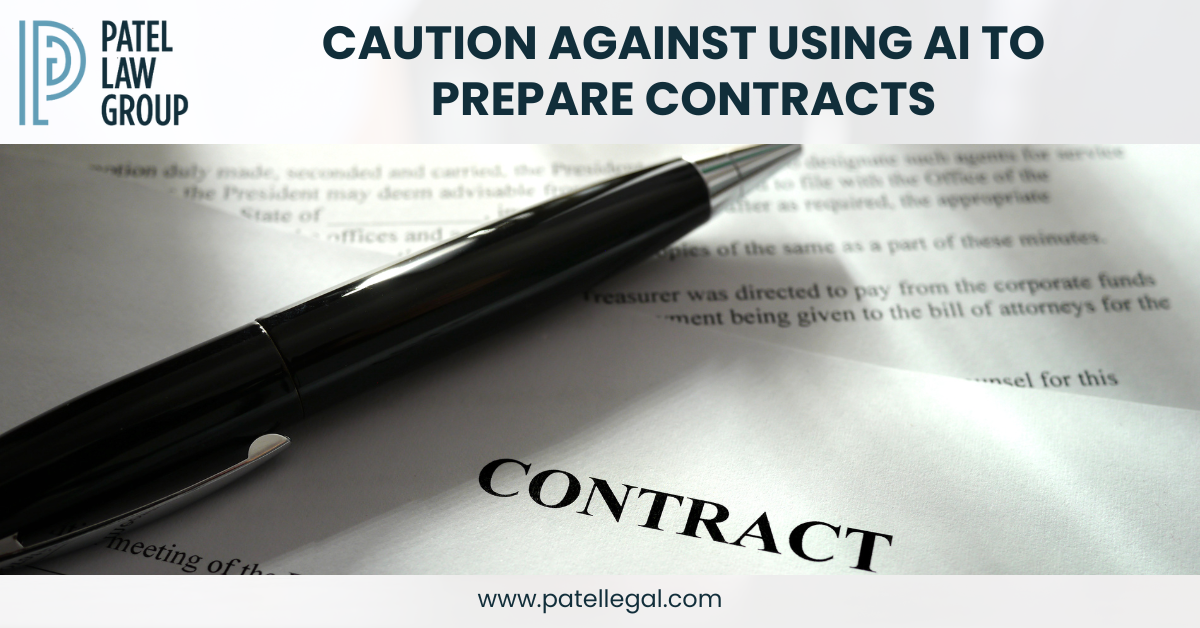With the development of artificial intelligence (AI) and advances in its capabilities, many are becoming overly dependent and falling victim to its pitfalls. While AI has become a normal part of our everyday lives and can make things easier, it is not bulletproof. Understanding the weaknesses of AI, especially when applied to legal documents, is imperative to ensure you are protected and that your contracts perform as intended. Below are some of the biggest risks involved in using AI-generated contracts:
1. Lack of Legal Expertise and Human Interpretation
While AI is a good tool, AI is not a good lawyer. Our laws are a complex system which require the interpretation and insight of humans to ensure that contracts and legal documents perform as intended. Similarly, legal documents are complex and require a more in depth human understanding on the practicalities involved and potential risks when applied in the real world. Although AI can instantly provide contract language, it is often incorrect, provides its answers based on incorrect or inapplicable statutes, or makes up fake caselaw. Unfortunately, AI has a tendency to “hallucinate” or make up false information with some studies finding that 58% to 82% of legal queries were made up. In fact, even lawyers have fallen victim to this and have been sanctioned for using AI-generated language citing false information.
2. Lack of Customization
Beyond AI’s failures in citing accurate law, AI also lacks the capability to fully customize contract language to the specific parties, issues, and risks involved. This is because AI pulls its results from pre-existing templates and is not able to use human judgement to cover complex and nuanced concepts. Because AI cannot think critically and consider potential legal disputes down the road or specific niche issues, AI-generated documents often fail to achieve your business goals.
3. Privacy Concerns
AI platforms involve third parties. Uploading your sensitive and/or proprietary information to these third party platforms create significant risks for your business in the event of data breaches or unauthorized access. As such, you should be careful not to share sensitive or proprietary information to these platforms to avoid privacy risks.
4. Evolving Regulatory Landscape
Once of AI’s biggest pitfalls is its inability to stay up to date with new laws and regulations. Laws impacting funds, real estate, business transactions, and many other matters are constantly evolving. Because AI relies on its historical pre-existing templates and information, it isn’t able to keep up with changes in the law in real time. A lawyer’s job however, involves staying informed on new developments and changes in the law, ensuring that you are informed and protected.

Don’t Put Your Business at Risk
Given the various concerns associated with using AI, such as its lack of legal expertise, limited ability to customize, potential privacy risks, and difficulties in keeping up with regulatory changes, it is crucial to approach AI with caution. While AI can serve as a useful starting point, its effectiveness is dependent on the quality of its data and it lacks the sophistication needed to address all potential issues and complexities. Thus, it is essential to supplement AI with the expertise and judgment of a qualified legal professional to ensure the integrity and effectiveness of your legal documents.